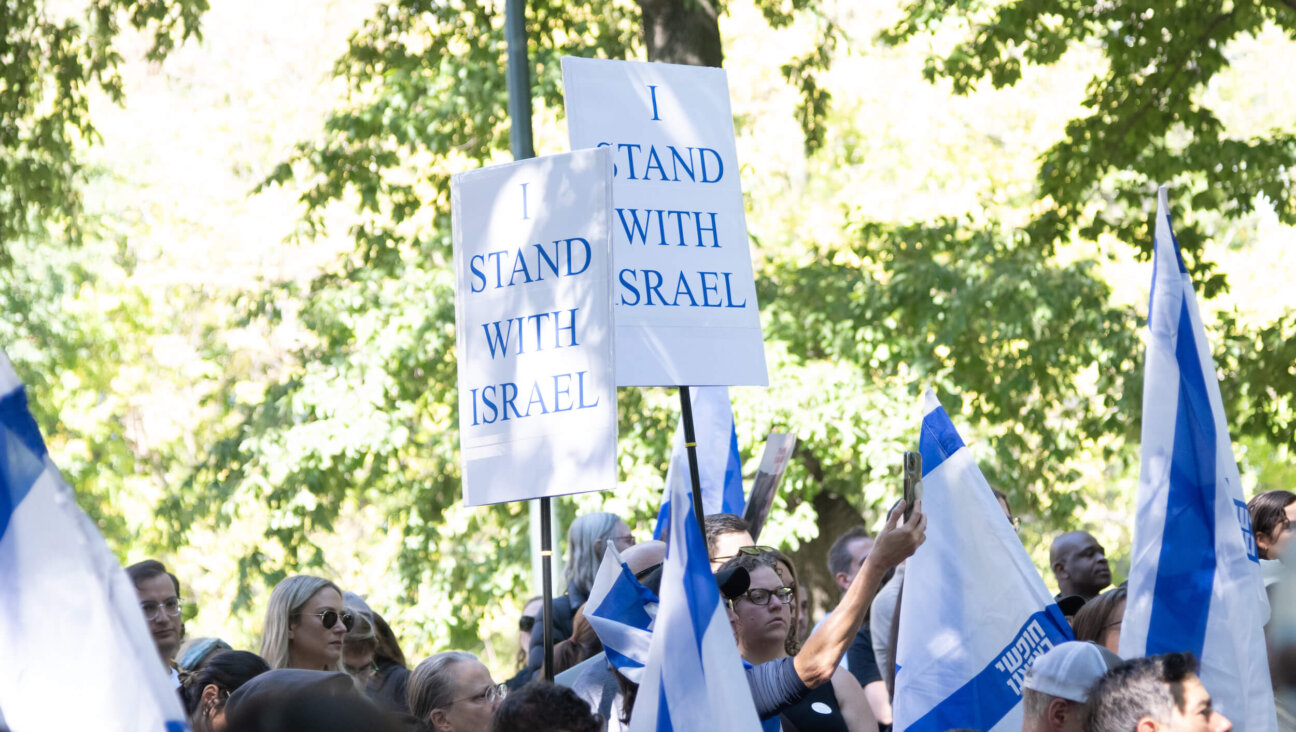The Specter of Another Political Murder
The new rabbinic pronouncements, rendered loudly from the bare hilltops of Judea and Samaria, that label Prime Minister Sharon a traitor and that imply — in veiled and barely deniable innuendo — that he could or should or must be murdered, are merely one end of the spectrum of right-wing settler opposition to disengagement. The rest of the spectrum comprises preparations for a massive public protest campaign, enough appeals to the High Court of Justice to paralyze it for years, and a lively debate about just how much violence settlers may legitimately use in fending off soldiers and police who come to remove them.
Israel’s most ideologically committed and politically skilled minority knows it is in a fight for its life. If Sharon succeeds in removing even a single settlement, a fateful precedent will have been set, one that puts Israel on the road to a Jewish and democratic state in part of Eretz Yisrael, rather than a Jewish but nondemocratic state — a mini-South Africa, really — in all of Eretz Yisrael.
The settlers’ success in defeating the Likud referendum early last May merely whetted their appetite for protest. Most of their planned activities are legitimate and legal, even if their objective is morally repugnant to at least 70% of Israelis. But the more violent activities, fomented among a few thousand extremist settlers and their spiritual leaders in places in the West Bank like Yitzhar and Bracha near Nablus and Tapuach near Ariel, are potentially lethal. As the heads of the Israeli security establishment warned July 4, settlers who don’t hesitate to fire into the air when the army comes to dismantle an uninhabited outpost — which has already happened — will eventually fire directly at the soldiers who come to remove them and their families.
Israelis with sharp memories of the Rabin premiership in the early 1990s can only smile and shake their heads at the irony of death threats being directed against Sharon. He was a friend of Rabin’s, but also a bitter political opponent of the Oslo peace process and the champion of the settlements that Rabin sought to delegitimize. While he never threatened Rabin, he did make common cause with the extremist settlers, and he used rhetoric that many understood as portraying the late prime minister as a traitor.
Now it is Sharon who is the target. “All my life I defended Jews, and now I’m being threatened by Jews,” the prime minister lamented last week.
If, heaven forbid, he were to be murdered by a fellow Jew, the assassination of a second Israeli leader seemingly bent on rolling back the settlement movement probably would mark the end of attempts to remove settlements or otherwise restrict Israel’s territorial reach in the West Bank and Gaza. The fanatics would have succeeded once and for all in determining both Israel’s national territorial agenda and its ethno-political nature. The tiny club of tough-minded generals-turned-prime ministers —Yitzhak Rabin, Ehud Barak and now, surprisingly, Ariel Sharon — who have stood up to challenge the settler concept of Jewish destiny would be closed down for good.
Why aren’t the rabbis and settlers who threaten violence and murder against their fellow Jews — or for that matter, against anybody — in jail? Why can Rabbi Avigdor Nebenzahl, rabbi of Jerusalem’s Old City and scion of a distinguished Zionist family, go to the illegal Givat HaRoeh outpost on June 29 and pronounce “din rodef” — a rabbinic verdict of “pursuer,” pronounced against someone who threatens another’s life and considered tantamount to a death sentence — upon anyone who delivers parts of Eretz Yisrael to the goyim, and get away with it? How can Uri Elitzur, a settler from Ofra who administered prime minister Benjamin Netanyahu’s office in the late 1990s, openly advocate two weeks ago that settlers use violence against soldiers and police who seek to remove them, and not even be interrogated?
Because not only do the inciters’ fellow ideological settlers condone their remarks — even as they tut-tut about avoiding the kind of fraternal strife that brought down the Second Temple — but the pragmatic secular mainstream seemingly fears to touch the extremists, ostensibly lest it trigger the very escalation of violence that is already being visited upon its leaders. The courts and legal experts prevaricate about the need to preserve free speech. Left-wing extremists don’t go after right-wing extremists because, our opinion surveys unanimously tell us, Israeli right wingers are five times more likely than those on the left to invoke violence as a means of advancing political ends. Finally, virtually everyone on the political, legal and security scene seems to back off when it is a rabbi who is invoking religious law to justify political murder.
Thus it was during the fateful months that led up to the Rabin assassination. Thus it was during the investigation that followed the assassination. Thus it appears to be now — until the next assassination.
Yossi Alpher, a former director of the Jaffee Center for Strategic Studies and former senior adviser to Prime Minister Ehud Barak, is co-editor of bitterlemons.org and bitterlemons- international.org.
A message from our Publisher & CEO Rachel Fishman Feddersen

I hope you appreciated this article. Before you go, I’d like to ask you to please support the Forward’s award-winning, nonprofit journalism during this critical time.
We’ve set a goal to raise $325,000 by December 31. That’s an ambitious goal, but one that will give us the resources we need to invest in the high quality news, opinion, analysis and cultural coverage that isn’t available anywhere else.
If you feel inspired to make an impact, now is the time to give something back. Join us as a member at your most generous level.
— Rachel Fishman Feddersen, Publisher and CEO






















